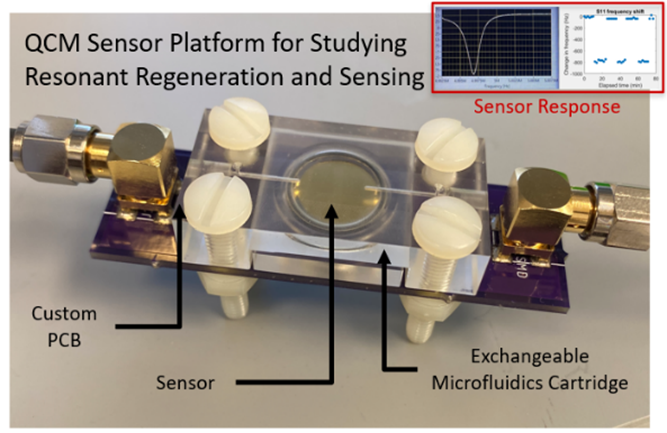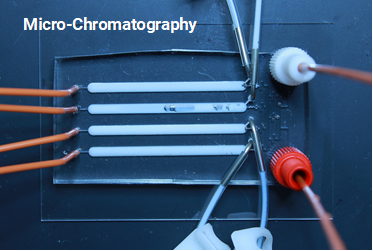
Contemporary process analytical technologies (PATs) for biomanufacturing are available for continuously monitoring a small set of analytical targets or are limited by costly and time-consuming offline efforts, which require extensive bioseparation, sample conditioning, and reagent handling. With the prime focus of the biopharmaceutical industry crystallizing around monoclonal antibodies and cell/gene therapies and the need for nimble, efficient production platforms, it is more relevant than ever to create scalable, in-line, and high-throughput quantification methods to interrogate and direct the control of complex, stochastic processes during a production run.
To overcome these challenges and realize modular and responsive biomanufacturing platforms, Dr. Mahshid Hosseini, graduate student Junhyeong Wang, and their colleagues have been developing novel biosensors and microsystems for improving process development and process analytics in Dr. Michael Daniele’s lab at NC State University. By combining microfluidic designs with closed-loop control systems, the researchers can conduct higher throughput screening of chromatography processes. Specifically, these microfluidic chips can simultaneously screen multiple process conditions, such as pH, osmolarity, and input concentrations. They are working on demonstrations of both protein and virus purification. These “micro-chromatography” devices can also provide upstream sample preparation for biosensor systems. Biosensor systems provide an alternative to traditional offline assays, as biosensors aim to be used at-line or integrated directly into the bioreactor.
The biosensor systems they are developing include both quartz crystal microbalances and electrochemical impedance spectroscopy biosensors. These sensors operate with label-free sensing principles, avoiding the need for time consuming and intricate sample preparation steps. In addition, they are investigating methods for in situ regeneration of the biosensors, so repeated measurements can be made during the entire bioreactor run. Regenerable biosensors offer the potential for high-resolution and continuous monitoring of product evolution during manufacturing, which is necessary for feedback-controlled automation. The biosensors under development are targeting the real-time quantification of monoclonal antibody (mAb) concentration and viral vector titer in process fluids.
